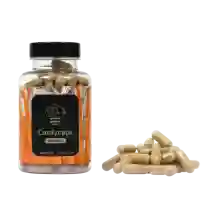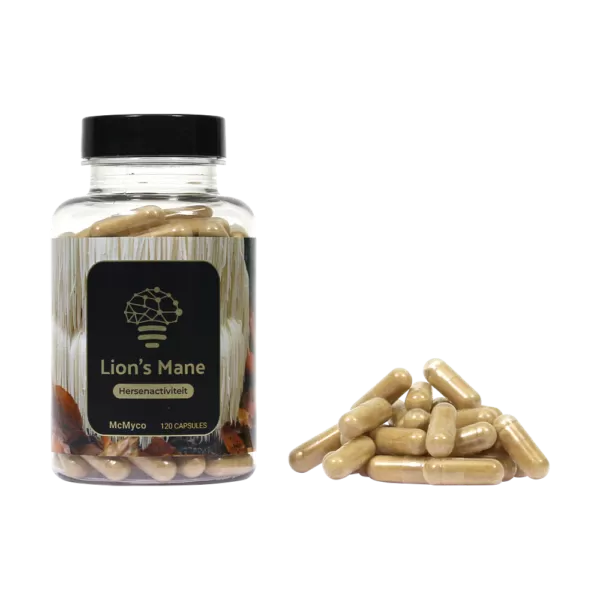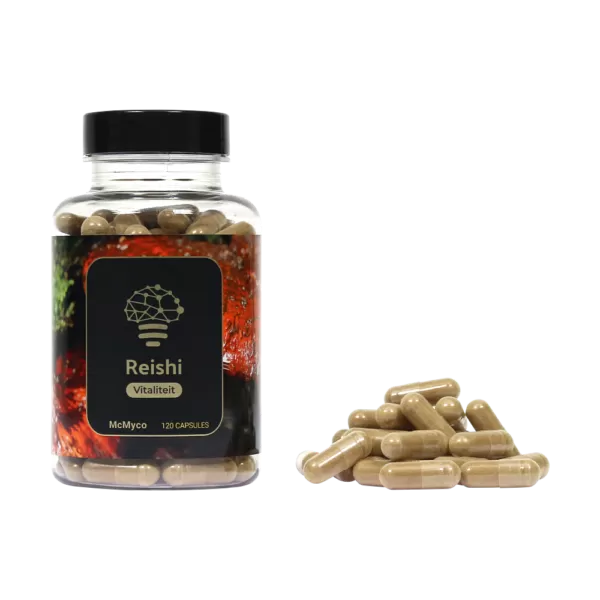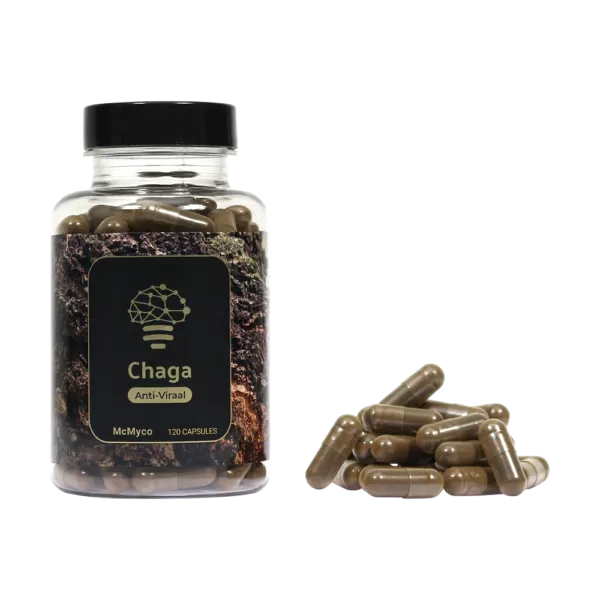
What are medicinal mushrooms and how can you use them?
Ah, mushrooms! Not only the heroes of a good risotto, but also stars in the world of traditional medicine. Who would have thought that something growing in dark, damp environments has the potential to enlighten your health and well-being? Besides the well-known psychedelic mushrooms's that can lift your mind to new heights, there are also the so-called medicinal mushrooms. Species like Lion’s Mane, Chaga, Reishi, Cordyceps and Turkey Tail are not so much the mind-expanding or party types, but they certainly have their own magical powers. Let's dive into the mysterious world of these natural wonders and discover how they can enrich your life. Maybe not as psychedelic, but certainly no less fascinating!
What exactly are medicinal mushrooms?
Medicinal mushrooms are basically fungi known for their health-promoting properties. They have been used for thousands of years in traditional Chinese medicine—yes, thousands of years, think about that. Do you have a problem that is thousands of years old? Medicinal mushrooms have been around for a while. Lion’s Mane, for example, is known for its potential to support brain function. Who doesn't need extra brain power in this complex world? Let's take a look at some of these special fungi.
The subtle powers of Lion’s Mane
Lion’s Mane, or Hericium erinaceus, grows mainly on hardwoods, especially beech in North America, Europe and Asiaë. This mushroom is unique because of its tooth- or thread-like structures that hang from a single point, giving it the appearance of a cheerleader's pom-pom. Often used in cooking because of its mild, sweet flavor, Lion’s Mane is also valued for its potential to improve cognitive functions such as memory and concentration. Researchers are studying how this mushroom may stimulate NGF (nerve growth factor) production, which is important for brain health.
Chaga: the antioxidant powerhouse
Chaga, or Inonotus obliquus, is often found on the bark of birch trees in cold climates, including Siberië, North Korea, northern Europe and the northern United States and Canada. This mushroom has a distinctive rough, black appearance that resembles charred wood, but on the inside it is orange and fibrous. Chaga is known for its high antioxidant content that can help fight free radicals and oxidative stress. Although it was traditionally used to support the immune system and overall well-being, today Chaga enjoys popularity in the form of teas and extracts.
Reishi, the mushroom of immortality
Reishi, or Ganoderma lucidum, grows on the stumps of dying trees in densely forested areas of Asiaë, Europe and North America. This mushroom is known for its red, shiny, kidney-shaped cap. Traditionally known as the "mushroom of immortality", Reishi is valued for its calming properties and is used to manage stress and sleep. Reishi's calming effects are attributed to the presence of triterpenes, a type of molecule that helps reduce stress and promote relaxation.
Cordyceps: the energy booster
Cordyceps is a genus of fungi with an unusual life cycle; it begins its life as a parasite on insects. The most famous species, Cordyceps sinensis, grows in the high mountain regions's of China and has been used in traditional Chinese medicine for centuries. Often used to increase energy and stamina, it is especially valued by athletes and the elderly. The mushroom contains adenosine, a nucleoside that plays a role in increasing ATP production (energy transfer in cells) and can help improve oxygen uptake and physical performance.
Turkey Tail: a colorful immune supporter
Turkey Tail, or Trametes versicolor, is easily recognized by its colorful, wavy rings reminiscent of a turkey bird at a Thanksgiving parade. This mushroom is widespread and grows on dead logs around the world. Rich in polysaccharides, especially beta-glucans, Turkey Tail is traditionally used to support the immune system and has recently been studied for its potential in combination with cancer therapiesën. Turkey Tail is particularly popular in the form of extracts and teas, prized for its ability to boost the immune system
Do these mushrooms really work?
 So, do these mushrooms come with a res result guarantee? No, of course not, this is nature, not Amazon Prime. The effects of medicinal mushrooms can be subtle and varyër from person to person. They are not meant to replace modern medicine but can be a valuable addition. It is important to remember that while anecdotal evidence is numerous, scientific research is still ongoing. As with anything, it's best to use a healthy dose of skepticism and perhaps a little hope.
So, do these mushrooms come with a res result guarantee? No, of course not, this is nature, not Amazon Prime. The effects of medicinal mushrooms can be subtle and varyër from person to person. They are not meant to replace modern medicine but can be a valuable addition. It is important to remember that while anecdotal evidence is numerous, scientific research is still ongoing. As with anything, it's best to use a healthy dose of skepticism and perhaps a little hope.
Time for some medi-shrooms!
So, what can medicinal mushrooms really écht do for you? Don't expect miracles or superpowers, but don't underestimate them as allies for your well-being, either. Fancy boosting your memory with Lion’s Mane? Or perhaps bring some peace into your busy life with a dose of Reishi? These natural treasures will do more than tantalize your taste buds.
But let's be realistic. Are you going to live forever thanks to the ‘immortal’ Reishi? No. Will Cordyceps transform you into an energy bomb? Well, you won't win marathons purely because of mushrooms. These fungi are no substitute for your doctor's visit, but they can be a powerful addition to your health routine.
So, what are you waiting for? Before you spend a fortune on exotic extracts, ask yourself this question: how much magic do you really expect from a fungus? Still, it might be worth experimenting. What's the worst that can happen? You may not get younger, but you may feel better. Dive into the world of medicinal mushrooms and be surprised. Who knows, maybe you'll discover that a little fungus is just what you needed!












